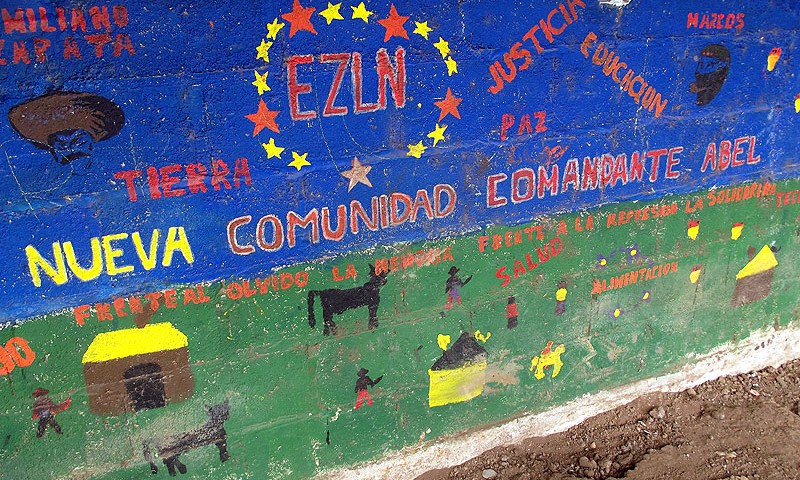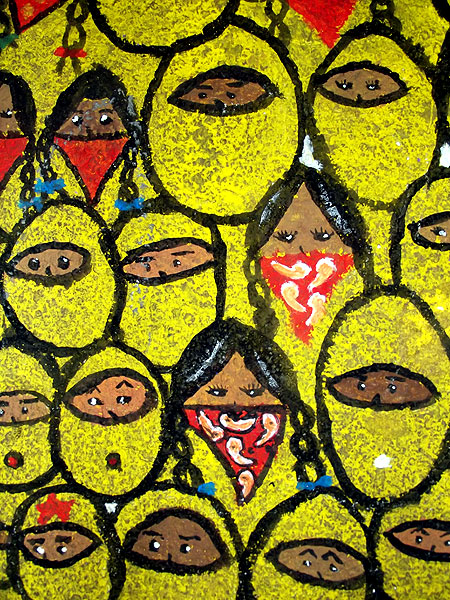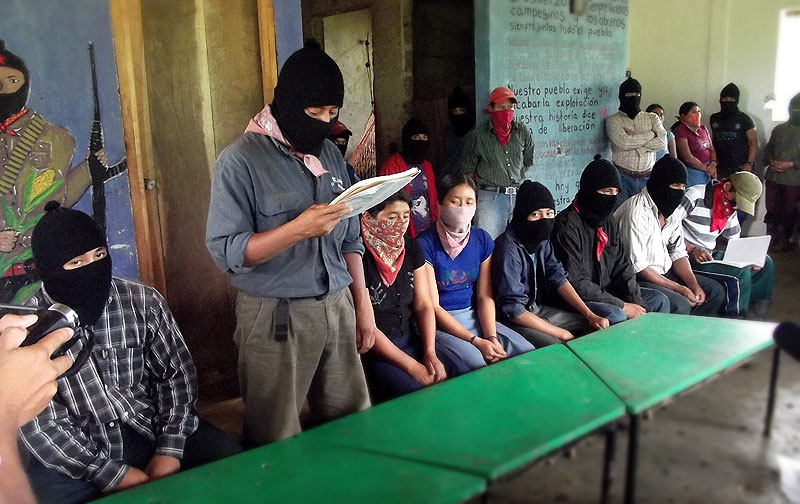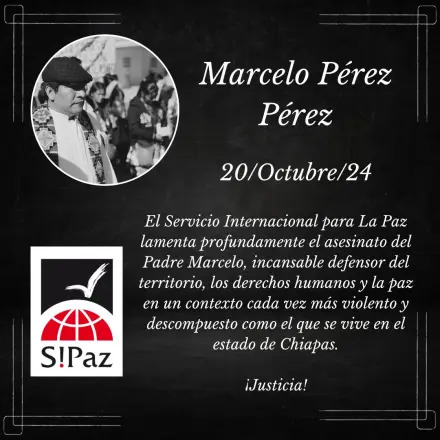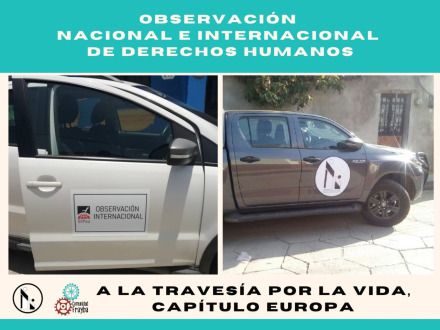SIPAZ Activities (From mid-May to mid-August 2012)
28/08/2012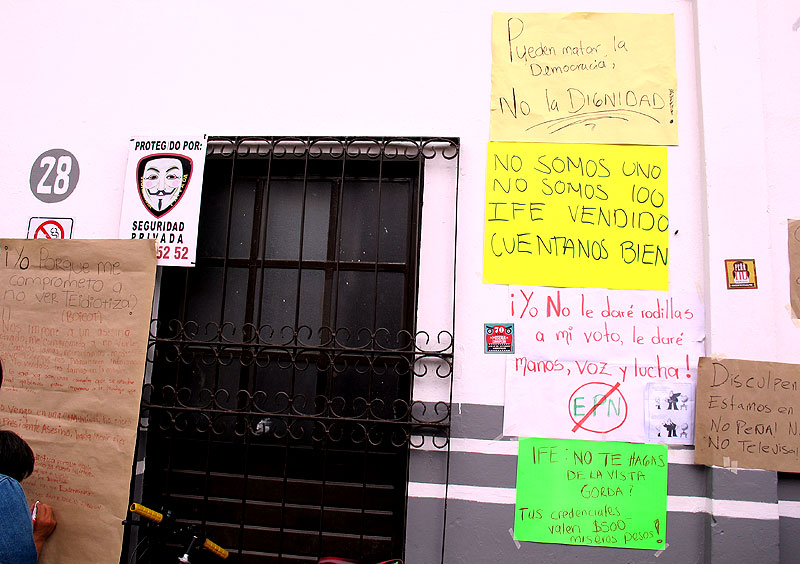
ANALYSIS : Mexico – between the close and beginning of administrations
28/11/2012
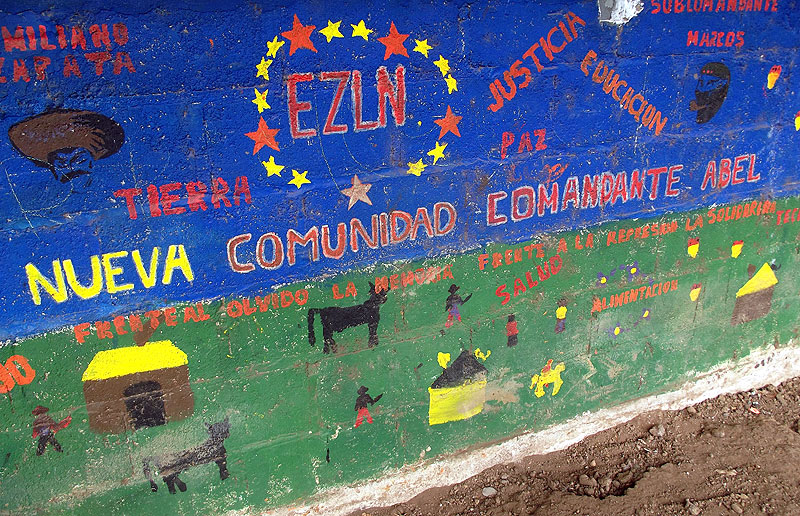 Cordial greetings from the SIPAZ team in Chiapas,
Cordial greetings from the SIPAZ team in Chiapas,
We would presently like to share with you the Report of the Caravan for Solidarity and Documentation in Nuevo Poblado Comandante Abel (Spanish) which was carried out from 18 to 20 September 2012 toward the end of documenting possible human-rights violations in this community that pertains to the autonomous municipality of La Dignidad (official municipality of Sabanilla) in the northern zone of the state of Chiapas, Mexico.
Members of the following organizations, national and international, participated in the mission: the Space of Struggle against Forgetting and Repression (ELCOR), the Network against Repression and for Solidarity, the Work Group “We Are Not All Here,” the Fray Bartolomé de Las Casas Center for Human Rights (Frayba), Promedios for Communal Communication, the Center for Women’s Rights Chiapas, the Center for Free Media, Radio Votán Zapata, the Norwegian Committee for Solidarity with Latin America (LAG), and the International Service for Peace.
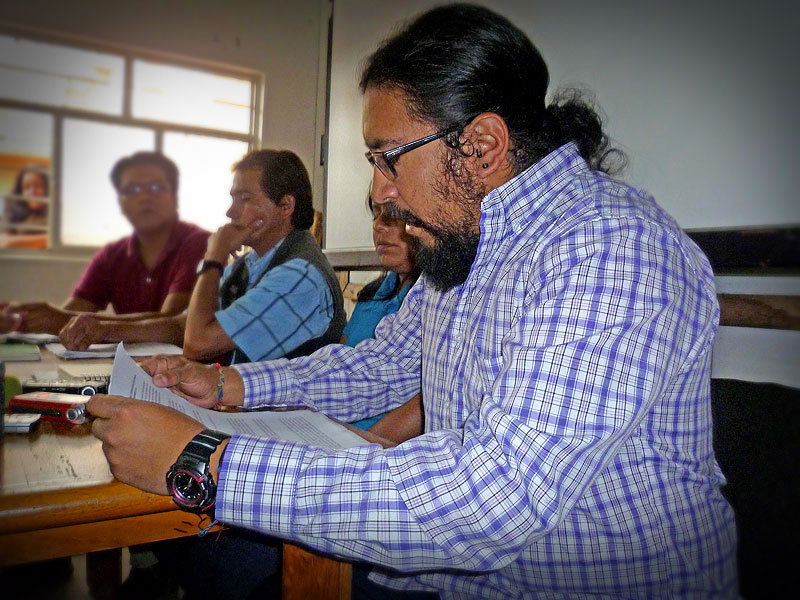 The Caravan carried out various interviews in the following communities: Nuevo Poblado Comandante Abel, San Marcos, and Zaquitel Ojo de Agua, all of which pertain to the autonomous municipality of La Dignidad. The latter two are locations where Zapatista support-bases found refuge following the violent acts recently experienced in the Comandante Abel community.
The Caravan carried out various interviews in the following communities: Nuevo Poblado Comandante Abel, San Marcos, and Zaquitel Ojo de Agua, all of which pertain to the autonomous municipality of La Dignidad. The latter two are locations where Zapatista support-bases found refuge following the violent acts recently experienced in the Comandante Abel community.
[issuu width=550 height=356 embedBackground=%23828282 backgroundColor=%23222222 documentId=120925164908-83051abddce8467fbb48620068cc7d7f name=informe_caravana_ username=sipaz tag=caravana unit=px v=2]
Download Report:
Findings of the report:
In Nuevo Poblado Comandante Abel, seventy-five Zapatista supporters were forcibly displaced, as the number of aggressors increased from 55 to 150 between 6 and 19 September. The attackers built a camp 500 meters from the Zapatistas, erecting 7 houses. Several bullet-holes could be observed in the walls of the Autonomous School and the Cooperative Stores, as well as in the foundations of trenches on the shore of the river located 200 meters from the community. The Zapatista support-bases mentioned that they identified the weapons used as R-15; they also report that during the night the aggressors install themselves in the trenches, training their weapons in the direction in which the Zapatistas are located. The community there is comprised of 147 hectares, half of which have been occupied by the invaders. The ongoing siege of the community makes difficult the management of cattle. A Public Security post was established on 16 September some 400 meters from the entrance to the community. The Zapatista support-bases relate that on 18 September, members of the police discharged their firearms twice during the morning.
The Zapatista support-bases denounce that “On 4 September Eduardo Montoya, Maximiliano Narváez, and Noé Castañón arrived at the community together with State Public Security to meet with the paramilitaries, to telll them that the land belongs to them.”
In the autonomous community of San Marcos, the members of the Caravan found sixteen women, twenty-one youth, and thirty-five children—Zapatistas—from Nuevo Poblado Comandante Abel who have been displaced since 8 September. Their living conditions are precarious. The Autonomous School where the women have been staying with their children is small, and disease has spread there. The two women and two children who had previously been reported by the Good-Government Council as missing were found on 11 September. All of them left behind their maize, chickens, pigs, and turkeys. The sick are being attended to by health promoters, but they continue ill.
In the Zaquitel Ojo de Agua community can be found four women, four children, and four adult males who belong to the Unión Hidalgo community. They told us that some of their comrades have remained in the community to look after the children, pigs, and turkeys, but that they cannot exit to work, find firewood, or collect maize, such that they suffer from hunger. They are threatened with death by PRI members who hide to fire upon them. The Zapatista support-bases mentioned that they have not lost any of their belongings. The situation of the displaced, as related to us by the victims themselves, is marked by suffering, for they find themselves ill with high temperatures, coughing, vomiting, and diarrhea. With only two sets of clothes, the children face a similar situation. Their comrades from Unión Hidalgo are supporting them with food. In the community death-threats continue day and night, and the aggressors continue shooting.
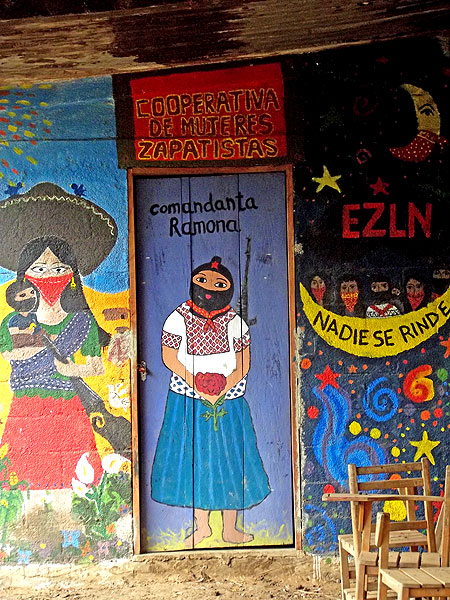 We members who participated in the Caravan for Solidarity and Documentation in Comandante Abel share a strong concern for the situation faced by the Zapatista support-bases. Above all, illness is affecting the women and children who had to spend several nights exposed to the elements during the cold of September, putting their lives at risk.
We members who participated in the Caravan for Solidarity and Documentation in Comandante Abel share a strong concern for the situation faced by the Zapatista support-bases. Above all, illness is affecting the women and children who had to spend several nights exposed to the elements during the cold of September, putting their lives at risk.
We are alarmed that during our interviews the Zapatista support-bases detailed the links that exist between the aggresors, some of them being identified as members of Paz y Justicia, and governmental officials of Chiapas, whether currently or formerly serving. Beyond this, we see as worrying the control-post installed by state Public Security at the entrance of Nuevo Poblado Comandante Abel, which has been the origin of shots fired into the air on at least one occasion, as testimony shows.
We observe that while the families who are part of the Zapatista support-bases seek peaceful forms of resistance, the attackers operate openly and with impunity. The increase in aggressions has now been warned about in the denunciations published during the past two months by the Good-Government Councils of Oventik, Realidad, Morelia, and Garrucha.
See more:
Report of the caravan for Solidarity and Documentation in Nuevo Poblado Comandante Abel (in Spanish) (September 24, 2012)
Update to Urgent Action No. 02 CDHFBC: Forced displacement of 83 Zapatista support-bases in two communities (September 24, 2012)

